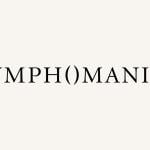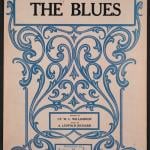By Carl Gregg, Pastor and Spiritual Director
My first impression of Brent Landau’s Revelation of the Magi was incredulity. The subtitle, “The Lost Tale of the Wise Men’s Journey to Bethlehem,” caused me to wonder about the book’s legitimacy. My curiosity was piqued when I saw the HarperOne imprint (a top-shelf publisher of popular, accessible religious titles); accolades on the back cover from major scholars such as John Dominic Crossan, Marvin Meyer, and Karen King; and the biographical citation that the author completed his doctoral work at Harvard.
As I began reading, I discovered that the subtitle’s claim of “lost” is a mild exaggeration. An eighth-century copy of the manuscript was stored for centuries in an Egyptian monastery before being transferred in the 1700s to the Vatican Library. A few scholars have written about this manuscript previously, but Landau’s book is the first English translation, giving hope to upcoming graduate students that you never know when you may stumble upon “treasure hidden in a field.”
Landau dates the original text of the “Revelation of the Magi” to the “late second or early third century.” So, although the book has little to contribute to any “Quest for the Historical Magi,” there is — as with texts like the second-century “Gospel of Judas” — insight to be gained about the early Christian communities that produced this work.
As someone invested in the Christian contemplative tradition, I was fascinated from the very first chapter in which the claim is made that the kings “were called Magi in the language of that land because in silence, without a sound, they glorified and they prayed.” Thus, irrespective of whether the historical Magi were contemplatives, we nevertheless have a strong early reference to a Christian community writing about the practice of silent prayer.
I was similarly fascinated by the theme that the “Wise Men” became “wise” due to “foreknowledge of the future” being passed down from Adam through his decedents, all the way until the magi. The alleged source of this knowledge derives from Adam’s eating of the fruit of the Tree of Knowledge. If this were the case, perhaps a long overdue “thank you” to Eve would be in order for passing the wisdom-bearing fruit to Adam!
As for whether I would commend this book to others, my opinion is undoubtably biased since I am someone who rushed to the bookstore a few years ago to buy a copy of “The Gospel of Judas” the first day it was released. I had no illusions that I would gain any insights into the “historical Judas.” However, as with “The Revelation of the Magi,” there is, again, insight to be gained into the diversity of early Christianity. So if you are looking for a present for the religion nerd in your life, the edition of the book is lovely, including eight full-page illustrations, albeit in black and white.
In closing, I have been asked to pose a question to the author. My question is: “If you were asked to preach on a text from “The Revelation of the Magi” in an open-minded, progressive Christian congregation on Epiphany Sunday 2011, what text(s) would you chose and what are some highlights of the sermon you would preach?”
Author Brent Landau responds:
If I were going to preach a sermon on the RevMagi, I would probably preach on what I consider to be the most pivotal verse in the entire text–what Christ says in his epiphany to the Magi:
My sermon would ask whether this statement is a truly pluralistic theology. Yes, it does do quite a bit better than most ancient and modern Christian thought on other religions. But it does so inclusively, that is, it includes other religions within the framework of Christian revelation. In essence, it seems to suggest that everybody in the world is a Christian but doesn’t know it–a position that probably wouldn’t sit well with very many Buddhists or Muslims. But it is also possible to understand the RevMagi to be saying that the divine revealer that the Magi encounter is no more intrinsically “Christ” than intrinsically “Buddha” or “Krishna.” That is much closer to a truly pluralistic theology, but is this the religious vision that open-minded, progressive Christians should seek after? That is the ultimate question I would pose to the congregation.
Check back at the Patheos Book Club for more bloggers’ reviews and questions – and Brent Landau’s responses – next week.
Carl Gregg is the Pastor at Broadview Church in Calvert County, Maryland. A graduate of the Diploma in the Art of Spiritual Direction program at San Francisco Theological Seminary, he is currently working on the dissertation for his Doctor of Ministry.
Visit Carl Gregg’s blog Protestant Pastor in a Post-Modern World at Patheos here.











